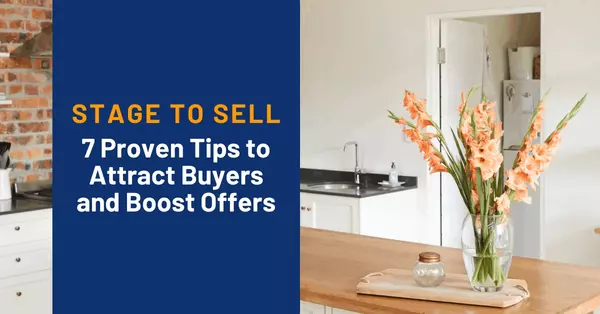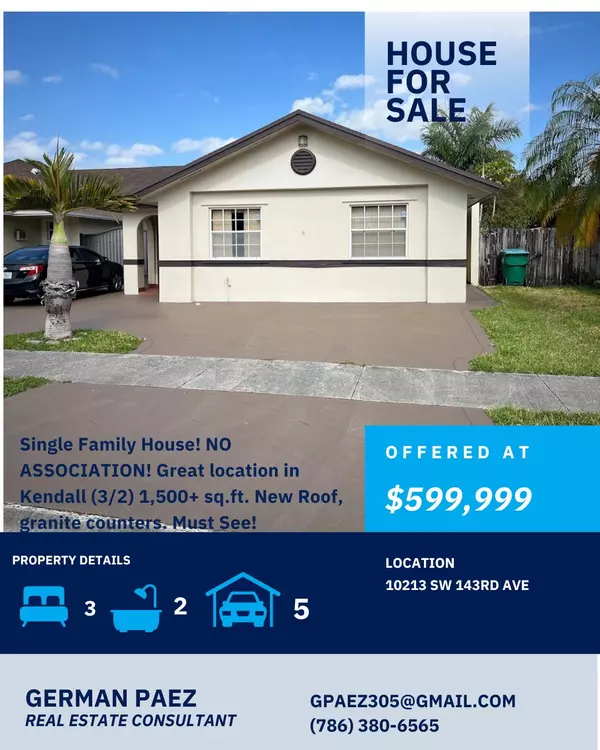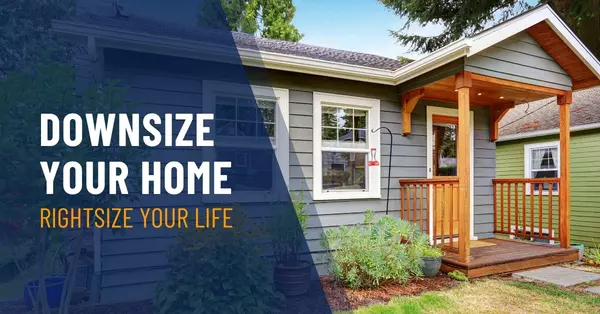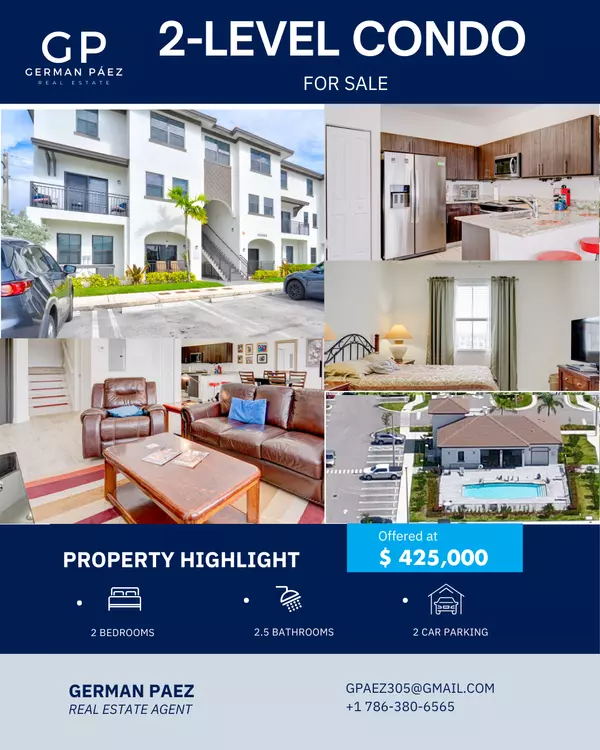What’s Your Home Actually Worth?

What’s Your Home Actually Worth? Discover What Buyers Will Pay in Today’s Market It’s easy to look up how much money you have in your savings account or the real-time value of your stock investments. But determining the dollar value of a home is trickier. As a seller, knowing your home’s worth helps you price it correctly when you put it up for sale. If you price it too high, it may sit on the market. But price it too low and you may be losing out on a good chunk of money (nobody wants that!). For buyers, it’s important to know a home’s worth before you make an offer. You want your offer to be competitive, but you don’t want to overpay for the property. Even if you’re not a buyer or seller right now, as a current homeowner you might just be curious about the value of your home. Keeping track of your home’s worth year over year helps you understand the trends in your market. So when you are ready to sell, you can take advantage of a good window of opportunity. The good news is, a trained real estate agent—who understands the nuances of your particular neighborhood—can determine the true market value of your property … and at no cost to you! THE THREE TYPES OF HOME VALUES When you start the process of buying or selling a home, you’ll frequently hear the words appraised value, assessed value, and true market value. It’s important to know the difference between each one so you can make better, informed decisions. Appraised Value A professional appraiser is in charge of determining the appraised value of a home. These appraisals are typically required by a lender when a buyer is financing the property. And while the lender is the one requiring this information, the appraiser does not work for the lender.1 Your appraiser should be an objective, licensed professional who doesn’t have allegiance to the buyer, seller, or lender—no matter who is paying their fee. The number the appraiser comes up with (the appraised value) assures the lender that the buyer is not overpaying for the property. For example, imagine a seller lists a home for $400,000. They reach a deal with the buyer to sell the home for $375,000. However, if an appraiser evaluates the property and determines that the appraised value is actually $325,000, then the lender will not lend for an amount higher than that appraised value of $325,000.2 When figuring out this number, an appraiser will compare the property to similar homes in your neighborhood, and they’ll evaluate factors such as location, square footage, appliances, upgrades, improvements, and the interior and exterior of the home. Assessed Value The assessed value of a home is determined by your local municipal property assessor. This value matters when your county calculates property taxes each year. The lower your assessed value, the less property tax you’ll pay.3 To come up with this value, your assessor will evaluate what comparable homes in the neighborhood have sold for, the size of your home, age, overall condition, and any improvements or upgrades that have been made. However, most assessors don’t have full access to your home, so their information is limited. Assessments are done annually to determine how much property tax you owe. Many counties use a multiplier (typically between 60%-80%) to calculate the final assessed value. So, if the assessor determines that the value of the home is $300,000, but the county uses a 70% multiplier, the assessed value of the home would be $210,000 for tax purposes.4 If your assessed value isn’t as high as you envisioned, don’t sweat it. Many homeowners appeal their assessment in favor of a lower valuation so that they can save money on property taxes. If you’re interested in appealing your property tax assessment, let us know. We offer complimentary assistance and would be happy to help you build your case. True Market Value True market value is established by your real estate agent. It basically refers to the value that a buyer is willing to pay for the property. A good real estate agent is an expert in determining true market value because they have hands-on experience buying and selling properties. They understand the mindsets of buyers in your market and know what they’ll pay for a desirable house, townhouse, or condo. As a seller, knowing your true market value is important because it helps you choose how much to list your property for. It can also help you decide if you want to make any improvements to your home before putting it on the market. Your agent can help you figure out which updates and upgrades will have the biggest impact on your true market value. WHAT’S THE DEAL WITH ONLINE CALCULATORS? When figuring out your home’s value, you might be tempted to see what popular real estate sites like Zillow, Redfin, and Trulia have to say. When you use an online calculator to determine your home’s value on these sites, it is just an estimate. It’s not an actual appraisal or the “true market value.” These sites all have their own algorithms for coming up with their estimates. For example, Zillow comes up with their “Zestimates” by calculating “public and user-submitted data, taking into account special features, location, and market conditions.” 5 These online estimates can be a great starting point for opening up the conversation with your real estate agent about your home’s worth. But even Zillow recommends that you use a real estate agent for coming up with the actual market value of your home. The site says that once you get your “Zestimate,” you should still get “a comparative market analysis from a real estate agent.” Having an agent involved in this process is essential because they understand the market better than a computer ever could. They’re showing property in your city every single day, and they know the particular preferences of buyers and sellers in the area. Young professionals, large families, empty nesters, and other groups are all looking for different things in a home. A local agent has most likely worked with all of them, so they understand what every segment in your market is specifically looking for. HOW AN AGENT FINDS YOUR HOME’S TRUE MARKET VALUE So, how does an actual real estate agent determine true market value? They’ll start by doing a comparative market analysis (CMA). This means they’ll compare your home’s features to similar properties in your area. For the CMA, the agent looks at the below factors to influence their assessment of your home’s worth:6 Neighborhood sales - Your agent will look at similar, recently sold homes in your neighborhood to see what they sold for and what they have in common with your house. The exterior - What does your home look like from the outside? Your agent will factor in curb appeal, the style of the house, the front and backyard, and anything else that impacts how the house looks to everyone walking and driving by. The interior - This is everything inside the walls of the house. Square footage, number of bedrooms and bathrooms, appliances, and more all influence the overall market value. Age of the home - Whether you have a newer or older home affects the number your agent comes up with as part of their assessment. Style of the home - The style of your home is important because buyers in different markets have different tastes. If buyers prefer ranch-style homes and you have one, then your home may sell for a premium (aka more money!). Market trends - Because a local agent has so much experience in your market, they have their finger on the pulse of your area’s trends and know what buyers are willing to pay for a property like yours. Location, location, location - This one’s probably the most obvious. Your agent will think about how popular the area is, how safe it is, and what schools are like. A computer algorithm simply can’t take all of these factors into account when calculating the value of your home. The reality is, nothing beats the accuracy of a real estate agent or professional appraiser when it comes to determining a home’s true market value. YOUR AGENT IS THERE EVERY STEP OF THE WAY Determining a home’s true market value is a real estate agent’s forte. If you’re a seller, your agent will help you find your home’s market value so you can list it at the right price. For buyers, your agent will help you determine the value so you can come up with a fair offer. Your agent can also set up a personalized home search on the Multiple Listing Service (MLS) for you so you’ll receive emails of listings that meet your criteria. This will help you see what’s out there in your city and how properties are being priced. Get a Complimentary Report With Your Home’s True Market Value Curious about your home’s true market value? Call us to request a free, no-obligation Comparative Market Analysis to find out exactly how much your home is worth! Sources: Chicago Tribune - https://www.chicagotribune.com/suburbs/chi-ugc-article-what-is-the-difference-between-market-value-a-2013-09-30-story.html SFGATE - https://homeguides.sfgate.com/market-value-vs-appraised-value-1206.html ValuePenguin - https://www.valuepenguin.com/mortgages/what-is-the-assessed-value-of-a-house Movoto - https://www.movoto.com/blog/homeownership/assessed-value-vs-market-value/ Zillow - https://www.zillow.com/how-much-is-my-home-worth/ com - https://www.realtor.com/advice/sell/assessed-value-vs-market-value-difference/
Read MoreSerious about Selling? 5 Steps to Make Your Home the Best on the Block

Serious About Selling? 5 Steps to Make Your Homethe Best on the Block We all want to be good neighbors. But when it comes to selling your home, it’s not just about “keeping up with the Joneses.” It’s about outshining them at every opportunity! If you’re looking to sell your home fast and for the most money possible, you’ll need a strategy to set it apart from all the other listings competing for buyers in your area. That’s why we’ve outlined our proven, five-step plan for serious sellers. Use these five tactics to help your listing get noticed, win over buyers, and net a higher sales price than your neighbors! STEP 1: Stage Your Home to Show Its Full Potential The average seller will do the minimum to prepare their home for market: clean and declutter, fix anything that’s broken, mow the lawn. And while those tasks are essential, today’s buyers want more than just a clean house and tidy yard. When they dream of buying a new home, they envision a designer house with modern finishes. Help them see your property’s full potential by staging it. Home staging is one of the hottest trends in real estate—because it works! According to the Real Estate Staging Association, homes that are professionally staged spend 73% less time on the market.1 So what exactly is staging? In a broad sense, staging is the act of preparing your home for market. The goal is to highlight your home’s strengths, minimize any deficiencies, and help buyers envision themselves living in the space. When staging a home, you might rearrange the furniture to make a room feel larger or remove heavy curtains to make it appear brighter. Some sellers choose to hire a professional home stager, who has specialized training and experience, to maximize the appeal of their home to the largest number of potential buyers. Others may opt to do it themselves, using guidance from their agent. We can help you determine the appropriate budget and effort required to push your home ahead of the competition in your neighborhood. The good news is, an investment in staging pays off. A 2018 survey found that 85% of staged homes sold for 6-25% more than their unstaged neighbors homes.2 STEP 2: Draw Buyers in with High-Quality Listing Photos You only have one chance to make a first impression with potential buyers. And many buyers will view photos of a listing before they decide whether or not to visit it in person. In fact, 87% of buyers find photos “very useful” in their home search.3 Poor-quality or amateur-looking listing photos could keep buyers from ever stepping through your door. Since good photography plays such an important role in getting your property noticed, we only work with the top local professionals to photograph our listings. But we don’t just rely on their photography skills when it comes to showcasing your home. We go the extra mile to ensure your listing photos showcase the true essence of your home. We’re always on site during the photo shoot to help the photographer capture the best angles and lighting, and to let them know about unique or compelling selling features that they should photograph. The extra effort pays off in the end. In fact, listings with high-quality photography sell 32% faster than the competition … and often for more money!4 STEP 3: Price It Properly From the Start Even in a strong real estate market, there are homes that will sit unsold for months on end. This can be the “kiss of death” in real estate, as buyers tend to imagine that there must be something wrong with the property, even if it’s not the case. But why are those houses still on the market in the first place? It’s because they are often priced too high. Every buyer has a budget. And most will be viewing listings within a particular price range. If your property is overpriced, it can’t properly compete with the other houses they’re viewing that are priced correctly. Which means it’ll sit on the market until you’re eventually forced to drop the price. Alternatively, if you price your home aggressively, it can be among the nicest homes that buyers have seen within their budget. This can lead to emotionally-attached buyers, who are often willing to pay a premium or settle for fewer seller concessions. And in certain markets, it can lead to a multiple-offer situation, or bidding war. The end result? More money in your pocket. We can help you determine the ideal listing price for your home in the current market. Pricing it properly in the beginning is the best way to ensure a fast and profitable sale. STEP 4: Put on a Good Show at Each Showing Once buyers are interested enough to schedule a visit, it’s crucial that you put on a good show at each showing. The first step is to make your home readily available—and often on short notice—for buyers to see it. A missed showing is a missed opportunity to sell your home. If you set too many restrictions on when it’s available to view, busy buyers will simply skip over your listing and move on to the next one. Part of making your home available means keeping it relatively show-ready as long as it’s on the market. Most of us don’t live picture-perfect lives, and our homes reflect the day-to-day reality of our busy (and sometimes messy) families. But a little extra effort spent keeping your home clean, fresh-smelling, and ready for buyers will help it sell faster … which means you can get back to your regular routine as quickly as possible! STEP 5: Use a Proven Promotion Plan Most agents are still marketing their listings like they did 20 years ago … put a sign in the yard, put the listing in the MLS, and pray that it sells. Yet, we know that 93% of buyers search for real estate listings online.3 That’s why we invest in the latest training and technology—to ensure your listing appears in the places where buyers are most likely to look. Our dual-level promotion strategy includes both pre-launch activities designed to seed the marketplace and post-listing activities to ensure your home stays top-of-mind with potential buyers. By utilizing online and social marketing platforms to connect with consumers and offline channels to connect with local real estate agents, your property gets maximum exposure to prospective buyers. LET’S GET MOVING Are you thinking about listing your home? Get a head start on your competition! Contact us for a copy of our Home Seller’s Guide, which offers a complete guide to the home selling process. Or call us to schedule a free no-commitment consultation. We’d love to put together a custom plan to maximize the sales potential of your property! Sources: Real Estate Staging Association - https://www.realestatestagingassociation.com/content.aspx?page_id=22&club_id=304550&module_id=164548 Home Staging Resources -https://www.homestagingresources.com/2018-home-staging-statistics/ National Association of Realtors -https://www.nar.realtor/sites/default/files/documents/2018-real-estate-in-a-digital-world-12-12-2018.pdf RIS Media -https://rismedia.com/2018/12/12/shocking-stats-importance-photography-real-estate/
Read MoreTop 7 Tips To Attract the Best Offers for Your Home

Top 7 Tips To Attract the Best Offers for Your Home Not long ago, home sellers were in their heyday, as historically-low mortgage rates triggered a real estate buying frenzy. However, the Federal Reserve shut down the party when it began raising interest rates last year.1 Now, it’s not as simple to sell a home. While pandemic-era homebuyers were racing the clock—trying to lock in a low mortgage rate and gain a foothold in the market—current buyers are more discerning. Higher prices and mortgage rates have pushed their limits of affordability, leading them to prioritize cost, condition, and overall value.2 The reality is, home inventory remains low, so most properties will still sell with some basic prep, the right price, and a good real estate agent. But owners who go the extra mile are more likely to sell faster and for a higher amount. If you have plans to sell your home and want to net the most money possible, this list is for you. Here are our top seven strategies to attract the best offers and maximize your real estate returns. UNDERGO A PRE-LISTING INSPECTION Many homebuyers hire a professional to complete a home inspection before they close. But did you know that a seller can order their own inspection, known as a pre-listing inspection, before they put their home on the market? Having a pre-listing inspection on hand and ready to share shows interested buyers that you’re committed to a transparent transaction. This can help you market your home, strengthen your negotiating position, and minimize roadblocks to closing.3 Of course, it’s always possible that a pre-listing inspection—which looks at the home’s major systems and structures, among other things—could turn up a significant problem. This does carry some risk, as you’ll be required to either fix or disclose any issues to potential buyers. However, in most cases, it’s better to know about and address deficiencies upfront than to find out mid-transaction, when it could cost you more in the form of concessions, a delayed closing, or a canceled sale. We can help you decide if a pre-listing inspection is right for you. And if it identifies any concerns, we can advise on which items need attention before you list your home. CONSIDER STRATEGIC UPGRADES Embarking on major renovations before putting your home on the market doesn’t always make financial (or logistical) sense. However, certain upgrades are more likely to pay off and can help elevate your home in the eyes of buyers. For example, refinishing hardwood floors results in an average 147% return on investment at resale and new garage doors typically pay for themselves.4 Similarly, research shows that professional landscaping can boost a home’s value by as much as 20%.5 Often, even simpler and less expensive fixes can make a big difference in how your home comes across to buyers. A fresh coat of paint in a neutral color, modern light fixtures and hardware, and new caulk around the tub or shower can help your property look its best.5 But before you make any changes to your home, reach out. We know what buyers in your neighborhood are looking for and can help you decide if a particular investment is worthwhile. HIRE A HOME STAGER To get standout offers, you need potential buyers to fall in love with your home—and they’re much more likely to do so if they can envision themselves in the space. That’s where home staging comes in. Staging can include everything from decluttering and packing away personal items to bringing in neutral furniture and accessories for showings and open houses. According to the National Association of Realtors, home staging can both increase the dollar value of home offers and help a property sell faster. In fact, 53% of seller’s agents agree that staging decreases the amount of time a home spends on the market, and 44% of buyer’s agents see higher offers for staged homes.6 There’s plenty of strategy and research behind the process, so it’s smart to consider a professional. Reach out for a connection to one of our recommended home stagers who can help your property show its full potential. EMPLOY A COMPETITIVE PRICING STRATEGY While it’s tempting to list your property at the highest possible price, that approach can backfire. Homes that are overpriced tend to sit on the market, which can drive away potential buyers—and drive down offers.7 Alternatively, if you price your home competitively, which is either at or slightly below market value, it can be among the nicest that buyers see within their budgets. This can ultimately lead to a higher sales price and fewer concessions. To help you list at the right price, we will do a comparative market analysis, or CMA. This integral piece of research will help us determine an ideal listing price based on the amount that comparable properties have recently sold for in your neighborhood. Without this data, you risk pricing your home too high (and getting no offers) or too low (and leaving money on the table). Combined with our local market insights, we’ll help you find that sweet spot that will attract the best offers while maximizing your profit margin. OFFER BUYER INCENTIVES Sometimes, sweetening the deal with buyer incentives can help you get the best possible offer. Incentives are especially helpful in the current market, when many buyers are struggling with affordability and concerned about their monthly payments. Options that can pay off include: Buying down their interest rate – You can pay an upfront sum to reduce the buyer’s mortgage rate. This approach can save far more than that cost over the life of the loan, meaning it’s worth more to the buyer than a simple price reduction.8 Offering closing cost credits – You might pay a set amount or a certain percentage of the buyer’s closing costs. Paying HOA costs – You could cover homeowner association or condominium fees for a set period of time. Including furniture or appliances in the sale – If your buyer is interested, throwing in the furniture or appliances that they want and need can make your property more appealing. Buyer incentives vary and valuing them can get complicated. We’re happy to talk through the options that might make sense for you. USE A PROVEN PROPERTY MARKETING PLAN Gone are the days when it was enough to put a “for sale” sign in your yard and place a listing on the MLS. A strategic marketing plan is now essential to get your home in front of as many interested and qualified buyers as possible. The truth is, buyers who don’t know about your house can’t make an offer. That’s why we utilize a multi-step approach to marketing that starts with identifying your target audience, effectively positioning your home in the market, and communicating its unique value. We then use a variety of distribution channels to connect with potential buyers and performance-based metrics to monitor and improve our campaign results. Our proven approach can have a big impact on the success of your sale. Reach out to learn more about our multi-step marketing plan and discuss how we can use it to generate interest and offers for your home. WORK WITH AN AGENT WHO UNDERSTANDS YOUR AREA To get the best offers possible, you need a real estate agent who knows your area inside and out. Any agent can pull comparable sales data, but in a quickly-evolving market, even the latest comps can lag the current market reality. We have our fingers on the pulse of the local market because we’re working directly with sellers like you. We also represent local buyers who are active in the market, searching for homes like yours. That puts us in an ideal position to help you price your home for a quick sale and maximum profit. And since we hear first-hand what local buyers want, we can help you prep your home to broaden its appeal and highlight its most-coveted features. Additionally, we can use our extensive network of local agents to solicit feedback and get your home in front of more potential buyers. All of these factors can add up to a significant difference in your profit: In 2021, the typical home sold by owner went for $225,000 compared to a median price of $330,000 for agent-assisted home sales.9 LET’S GET MOVING Are you ready to get a great offer for your home? Our multifaceted approach can help you maximize your real estate returns. Reach out for a free home value assessment and customized sales plan to get started! The above references an opinion and is for informational purposes only. It is not intended to be financial, legal, or tax advice. Consult the appropriate professionals for advice regarding your individual needs. Sources: U.S. Bank - https://www.usbank.com/investing/financial-perspectives/investing-insights/interest-rates-impact-on-housing-market.html National Association of Realtors -https://www.nar.realtor/sites/default/files/documents/2023-home-buyers-and-sellers-generational-trends-report-03-28-2023.pdf Bankrate -https://www.bankrate.com/real-estate/prelisting-inspection/ National Association of Realtors -https://www.nar.realtor/sites/default/files/documents/2022-remodeling-impact-report-04-19-2022.pdf Bankrate -https://www.bankrate.com/homeownership/landscaping-increase-home-value/ National Association of Realtors -https://www.nar.realtor/infographics/staged-for-success The Balance -https://www.thebalancemoney.com/looking-twice-at-overpriced-homes-1798671 U.S. News & World Report -https://money.usnews.com/loans/mortgages/articles/a-guide-to-seller-paid-mortgage-rate-buydowns National Association of Realtors -https://www.nar.realtor/research-and-statistics/quick-real-estate-statistics
Read More-

Buy Now or Rent Longer? 5 Questions to AnswerBefore Purchasing Your First Home Deciding whether to jump into the housing market or rent instead is rarely an easy decision – especially if you’re a first-time homebuyer. But in today’s whirlwind market, you may find it particularly challenging to pinpoint the best time to start exploring homeownership. A real estate boom during the pandemic pushed home prices to an all-time high.1 Add higher mortgage rates to the mix, and some would-be buyers are wondering if they should wait to see if prices or rates come down. But is renting a better alternative? Rents have also soared along with inflation – and are likely to continue climbing due to a persistent housing shortage.2 And while homebuyers can lock in a set mortgage payment, renters are at the mercy of these rising costs for the foreseeable future. So, what's the better choice for you? There’s a lot to consider when it comes to buying versus renting. Luckily, you don’t have to do it alone. Reach out to schedule a free consultation and we'll help walk you through your options. You may also find it helpful to ask yourself the following questions: How long do I plan to stay in the home? You'll get the most financial benefit from a home purchase if you own the property for at least five years.3 If you plan to sell in a shorter period of time, a home purchase may not be the best choice for you. There are costs associated with buying and selling a home, and it may take time for the property’s value to rise enough to offset those expenditures. Even though housing markets can shift from one year to the next, you’ll typically find that a home’s value will ride out a market’s ups and downs and appreciate with time.4 The longer you own a property, the more you are likely to benefit from its appreciation. Once you’ve found a community that you’d like to stay in for several years, then buying over renting can really pay off. You’ll not only benefit from appreciation, but you’ll also build equity as you pay down your mortgage – and you’ll have more security and stability overall. Also important: If you plan to stay in the home for the life of the mortgage, there will come a time when you no longer have to make those payments. As a result, your housing costs will drop dramatically, while your equity (and net worth) continue to grow. Is it a better value to buy or rent in my area? If you know you plan to stay put for at least five years, you should consider whether buying or renting is the better bargain in your area. One helpful tool for evaluating your options is a neighborhood’s price-to-rent ratio: just divide the median home price by the median yearly rent price. The higher the price-to-rent ratio is, the more expensive it is to buy compared to rent.5 Keep in mind, though, that this equation provides only a snapshot of where the market stands today. As such, it may not accurately account for the full impact of rising home values and rent increases over the long term. According to the National Association of Realtors, a typical U.S. homeowner who purchased a single-family existing home 10 years ago would have gained roughly $225,000 in equity — all while maintaining a steady mortgage payment.6 In contrast, someone who chose to rent for the past 10 years would have not only missed out on those equity gains, but they would have also seen U.S. rental prices increase by around 66%.7 So even if renting seems like a better bargain today, buying could be the better long-term financial play. Ready to compare your options? Then reach out to schedule a free consultation. As local market experts, we can help you interpret the numbers to determine if buying or renting is the better value in your particular neighborhood. Can I afford to be a homeowner? If you determine that buying a home is the better value, you’ll want to evaluate your financial readiness. Start by examining how much you have in savings. After committing a down payment and closing costs, will you still have enough money left over for ancillary expenses and emergencies? If not, that’s a sign you may be better off waiting until you’ve built a larger rainy-day fund. Then consider how your monthly budget will be impacted. Remember, your monthly mortgage payment won’t be your only expense going forward. You may also need to factor in property taxes, insurance, association fees, maintenance, and repairs. Still, you could find that the monthly cost of homeownership is comparable to renting, especially if you make a sizable down payment. Landlords often pass the extra costs of homeowning onto tenants, so it’s not always the cheaper option. Plus, even though you’ll be in charge of financing your home’s upkeep if you buy, you’ll also be the one who stands to benefit from the fruits of your investment. Every major upgrade, for example, not only makes your home a nicer place to live; it also helps boost your home's market value. If you want to buy a home but aren’t sure you can afford it, give us a call to discuss your goals and budget. We can give you a realistic assessment of your options and help you determine if your homeownership dreams are within reach. Can I qualify for a mortgage? If you’re prepared to handle the costs of homeownership, you’ll next want to look into how likely you are to get approved for a mortgage. Every lender will have its own criteria. But, in general, you can expect a creditor to scrutinize your job stability, credit history, and savings to make sure you can handle a monthly mortgage payment. For example, lenders like to see evidence that your income is stable and predictable. So if you’re self-employed, you may need to provide additional documentation proving that your earnings are dependable. A lender will also compare your monthly debt payments to your income to make sure you aren’t at risk of becoming financially overextended. In addition, a lender will check your credit report to verify that you have a history of on-time payments and can be trusted to pay your bills. Generally, the higher your credit score, the better your odds of securing a competitive rate. Whatever your circumstances, it’s always a good idea to get preapproved for a mortgage before you start house hunting. Let us know if you’re interested, and we’ll give you a referral to a loan officer or mortgage broker who can help. Want to learn more about applying for a mortgage? Reach out to request a copy of our report: “8 Strategies to Secure a Lower Mortgage Rate” How would owning a home change my life? Before you begin the preapproval process, however, it’s important to consider how homeownership would affect your life, aside from the long-term financial gains. In general, you should be prepared to invest more time and energy in owning a home than you do renting one. There can be a fair amount of upkeep involved, especially if you buy a fixer-upper or overcommit yourself to a lot of DIY projects. If you’ve only lived in an apartment, for example, you could be surprised by the amount of time you spend maintaining a lawn. On the other hand, you might relish the chance to tinker in your very own garden, make HGTV-inspired improvements, or play with your dog in a big backyard. Or, if you’re more social, you might enjoy hosting family gatherings or attending block parties with other committed homeowners. The great thing about owning a home is that you can generally do what you want with it – even if that means painting your walls fiesta red one month and eggplant purple the next. The choice – like the home – is all yours. HAVE MORE QUESTIONS? WE’VE GOT ANSWERS The decision to buy or rent a home is among the most consequential you will make in your lifetime. We can make the process easier by helping you compare your options using real-time local market data. So don't hesitate to reach out for a personalized consultation, regardless of where you are in your deliberations. We'd be happy to answer your questions and identify actionable steps you can take now to reach your long-term goals. The above references an opinion and is for informational purposes only. It is not intended to be financial, legal, or tax advice. Consult the appropriate professionals for advice regarding your individual needs. Sources: CNN - https://www.cnn.com/2022/08/11/homes/home-prices-second-quarter/index.html NPR - https://www.npr.org/2022/07/14/1109345201/theres-a-massive-housing-shortage-across-the-u-s-heres-how-bad-it-is-where-you-l Bankrate - https://www.bankrate.com/mortgages/5-year-real-estate-rule/ Federal Reserve Bank of St. Louis -https://fred.stlouisfed.org/series/MSPUS National Association of REALTORS - https://www.nar.realtor/blogs/economists-outlook/price-to-rent-ratios-by-state-from-2014-2019 National Association of REALTORS -https://www.nar.realtor/blogs/economists-outlook/single-family-homeowners-typically-accumulated-225K-in-housing-wealth-over-10-years Statista - https://www.statista.com/statistics/200223/median-apartment-rent-in-the-us-since-1980/
Read More
Recent Posts











